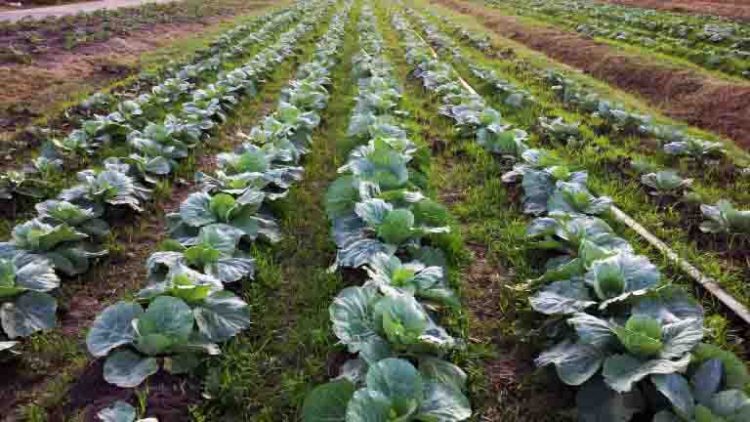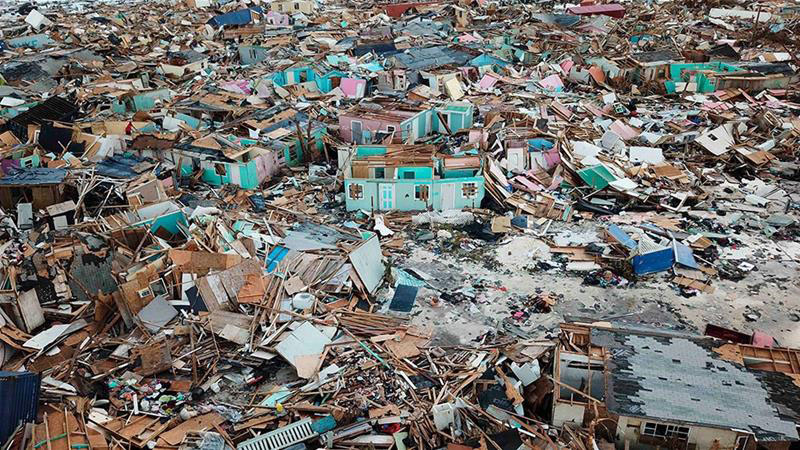The portents for a global food crisis may already be looming large as climate change unleashes a multi-faceted onslaught on the food production system according to a report from the Inter- governmental Panel on Climate Change, (IPCC) a United Nations body dedicated to providing an objective, scientific perspective on climate change, its natural political and economic impacts and risks and possible response options. And while the study does not undertake a specific examination of the prospects for the Caribbean its findings bespeak a randomness in the pattern of climate change which suggests the Caribbean enjoys no immunity from climate-related food security challenges.
The report, released in August this year but seemingly only sparingly publicized in the region, explores the impacts of climate breakdown on the global food system, making a case for climate change presenting the most formidable challenge to the world feeding itself in the years ahead.

Contemporary climate change manifests itself in devastating hurricanes, storm surges, heat waves, flash floods, and wildfires, all of which, setting aside their impact on lives and living seriously undermine the food-production capabilities in affected countries. The study asserts that setting aside the impact of extreme weather on human safety rather less attention is sometimes paid to what it says are some of the most worrying aspects of climate change,—our food system. In Asia, for example, it notes that melting glaciers continue to threaten the food supplies of much of the population of Asia. “For thousands of years, the runoff from those glaciers has been replenished each year by ice buildup in the mountains. But right now they’re melting at a much faster rate than they are being replaced. On our present trajectory, if our governments fail to accomplish radical emissions reductions, most of those glaciers will be gone within a single human lifetime. This will rip the heart out of the region’s food system, leaving 800 million people in crisis.”
Concerns over climate-related threats to global food production have also arisen in the Middle East where predictions are emerging that “droughts and desertification will render whole regions inhospitable to agriculture.”
The IPCC Report asserts that while up until now food crises in countries and regions have been covered by surpluses from elsewhere reliable research points to a great danger that climate breakdown could trigger shortages on multiple continents simultaneously, leaving few ‘fall back’ options. According to the IPCC report, warming more than 2 degrees Celsius is likely to cause “sustained food supply disruptions globally… The potential risk of multi-breadbasket failure is increasing”, the Report adds. Climate change, meanwhile, is widely believed to pose one of the more formidable threats to human health, given concerns that it could impact significantly on hunger rates, malnutrition, and child stunting.
Beyond the human health concerns there are also political considerations associated with the phenomenon. There are also implications for political stability. Fears concerning food shortages in some regions are hinged to worry over the likelihood of mass displacement as people migrate to more arable parts of the planet or in search of stable food supplies. This may already be manifesting itself in some developing countries in the western hemisphere.
While climate change has long been part of the political agenda here in the Caribbean, climate-related disasters associated with hurricanes and storms and the physical damage that they wreak in parts of the region are bringing home to the region the true reality of the phenomenon. Hurricane Dorian’s very recent devastating ‘visit’ to The Bahamas was not the first serious warning visited upon the Caribbean – which is already facing challenges associated with food supplies availability – that the worsening impact of climate change on agriculture could flatten some of the economies of the region. In the instance of Guyana, widely regarded as the Caribbean’s valued food storehouse, serious recent floods in residential and farming communities across the country have erased the notion that Guyana may well be spared the worst excesses of climate change. With Guyana still widely regarded as the ‘bread basket’ of the Caribbean, changing climate and its impact on weather patterns here can have Caribbean-wide implications for regional food security.
In the circumstances a relatively recent scientific estimate that for every degree we heat the planet the yields of staple cereal crops will decline by an average of about 10 percent comes into sharp focus. In other words if we turn our backs on climate-smart responses and simply maintain a business-as-usual posture key staples are likely to collapse by some 40 percent as the century wears on. Under normal circumstances, regional food shortages can be covered by surpluses from elsewhere on the planet. Other warnings suggest that there is a real danger that climate breakdown could trigger shortages on multiple continents simultaneously. According to the IPCC report, warming more than 2 degrees Celsius is likely to cause “sustained food supply disruptions globally.” As one of the lead authors of the report put it: “The potential risk of multi-breadbasket failure is increasing.”
Efforts to build a climate-resilient agriculture sector in the region have involved a collaborative effort between the Departments of Physics and Life Sciences at the University of the West Indies’ Mona Campus and the Department of Life Sciences, at St. Augustine. The two have hosted Crop Modeling workshops, “Training Modules in Crop Simulation Modeling, Climate Change and Livestock Impact Assessment.”



